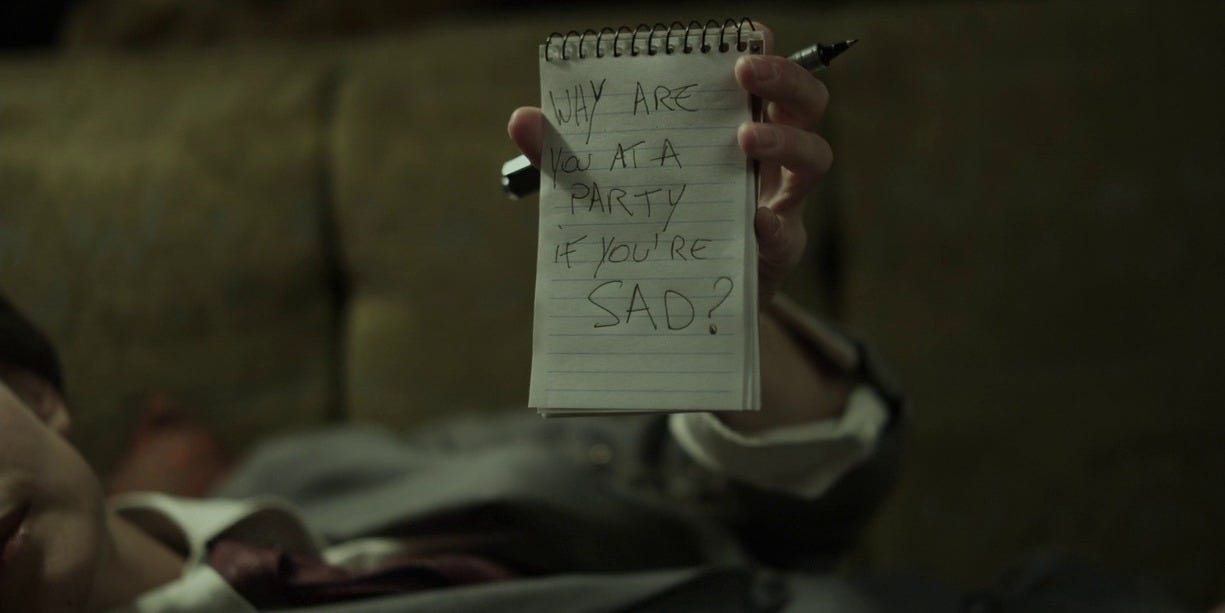i wouldn’t be very good company
Being Bad Company: Who is close enough to see you at your worst?
I try to decline invitations when I feel unable to be “good company.” If this seems noble, it’s not, it’s merely to avoid a fear that goes like this: if people see me at my worst, they won’t want to see me again, ever. So, I hide out whenever I don’t have the energy to present as the cheerful person I prefer to parade as. Being around people usually makes me feel better, yet still I choose to self-isolate. This is odd, since I’ve only ever felt closer to people after seeing them on a bad day.
Sometimes who sees us at our worst isn’t even within our control.
The day I broke two bones was not a day I wanted anyone to see me. If I could have taken myself to urgent care, I would have, instead I was hyper-aware that the person driving me was perceiving me at my most disheveled. Despite the pain shooting up my ankle, I still cared what he thought of me, so, I tried making jokes (they didn’t land) and attempted to conceal how sweaty I was, he’d just carried me down from the top of the hike where I’d fallen—so he knew.
Keep reading with a 7-day free trial
Subscribe to LET IT OUT LISTS to keep reading this post and get 7 days of free access to the full post archives.



